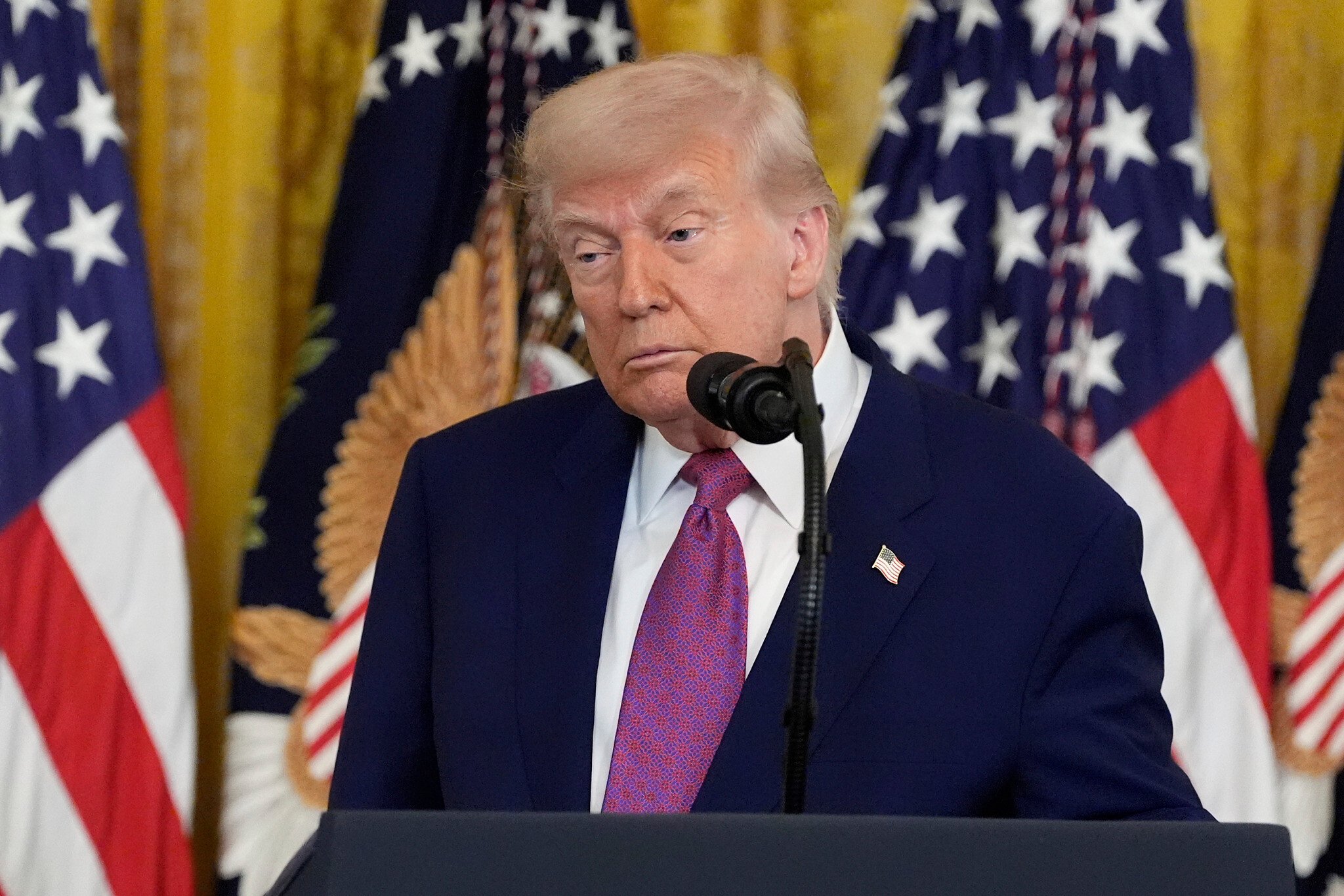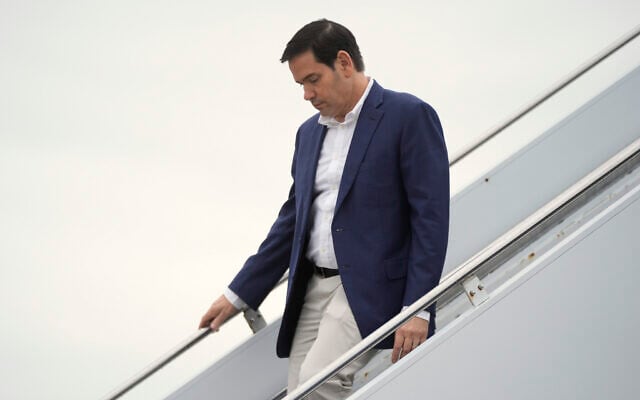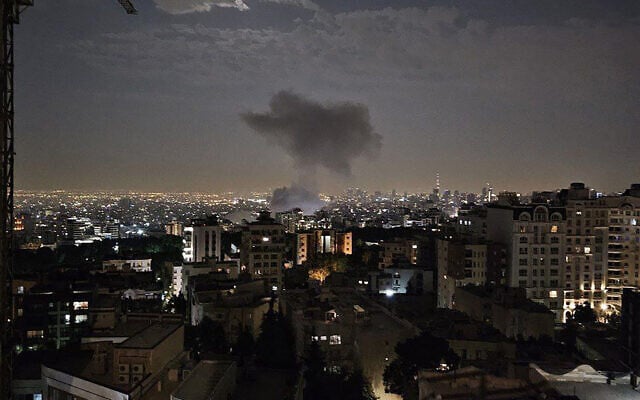



US President Donald Trump’s administration sought to distance the United States on Thursday evening from Israel’s strikes on Iran.
Israel said it had struck Iranian nuclear targets to block Tehran from developing atomic weapons, even as the Trump administration was preparing to hold a sixth round of talks on Sunday on Tehran’s escalating uranium enrichment program.
Marco Rubio, Trump’s secretary of state and national security adviser, stressed that Israel’s strikes were unilateral, while saying the US had known attacks would occur.
“We are not involved in strikes against Iran and our top priority is protecting American forces in the region,” Rubio said in a statement. “Israel advised us that they believe this action was necessary for its self-defense.”
Rubio had a stark warning for Iran, a day after the United States ordered some US personnel to leave the Middle East in response to tensions in the area. “Let me be clear: Iran should not target US interests or personnel,” he said.
His statement did not mention whether Washington would support Israel if it faces retaliatory strikes, a standard line in the past.
On Thursday, just hours before the strikes, Trump made the case that there was still time for diplomacy — but it was running out.
The White House had even planned to dispatch special envoy Steve Witkoff to Oman on Sunday for the next round of talks with Iranian Foreign Minister Abbas Araghchi. It appeared likely on Friday that those discussions would not take place as planned.
Iranian officials made clear Friday that they intended to retaliate with decisive action after the Israeli strikes targeted Iran’s main enrichment facility in Natanz and the country’s ballistic missile program, as well as top nuclear scientists and officials.
Indeed, by morning, Iran had already launched more than 100 drones at Israel, according to the Israel Defense Forces, which said it was working to shoot them down.
Trump is set to meet with his National Security Council in the Situation Room on Friday to discuss the tricky path ahead.
Sen. Tim Kaine, a Democrat from Virginia, offered rare words of Democratic praise for the Trump administration after the attack “for prioritizing diplomacy” and “refraining from participating in tonight’s actions.”
Senate Majority Leader John Thune, a Republican, said the US Senate “stands ready to work with President Trump and with our allies in Israel to restore peace in the region and, first and foremost, to defend the American people from Iranian aggression, especially our troops and civilians serving overseas.”
In the hours before the attack, Trump still appeared hopeful that there would be more time for diplomacy.
The president, in an exchange with reporters, again urged Iran to negotiate a deal. He warned that a “massive conflict” could occur in the Middle East without it. He later took to social media to emphasize that his “entire Administration has been directed to negotiate with Iran.”
As long as there was a chance for an agreement, Trump said of Israel, “I don’t want them going in because I think it would blow it.”
But it was clear to the administration that Israel was edging toward taking military action against Iran. The State Department on Wednesday directed a voluntary evacuation of non-essential personnel and their families from some US diplomatic outposts in the Middle East.
“I don’t want to be the one who didn’t give any warning, and missiles are flying into their buildings. It’s possible. So I had to do it,” Trump explained.
The push by the Trump administration to persuade Tehran to give up its nuclear program came after the US and other world powers in 2015 reached a long-term, comprehensive nuclear agreement that limited Tehran’s enrichment of uranium in exchange for the lifting of economic sanctions.
But Trump unilaterally withdrew the US from the Obama administration-brokered agreement in 2018, calling it the “worst deal ever.”
The Islamic Republic, which vows to destroy Israel, says its nuclear program is for civilian purposes. However, it enriches uranium up to 60 percent — a level that has no civilian purpose and is close to the 90% threshold needed for a nuclear warhead — and has obstructed international inspectors from checking its nuclear facilities.
Times of Israel staff contributed to this report.


